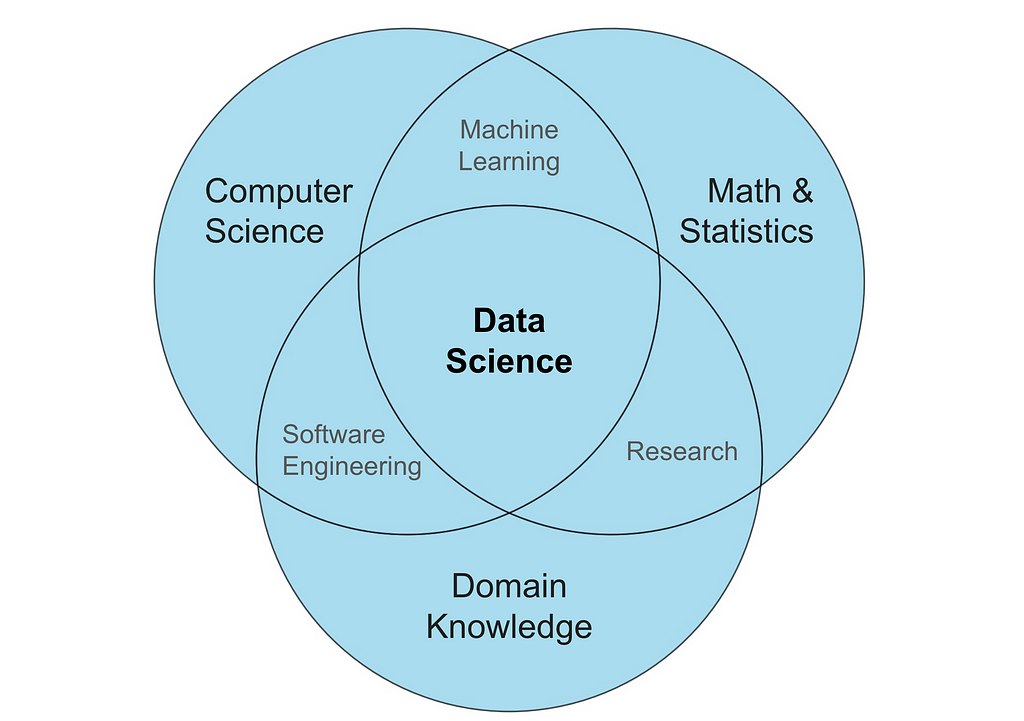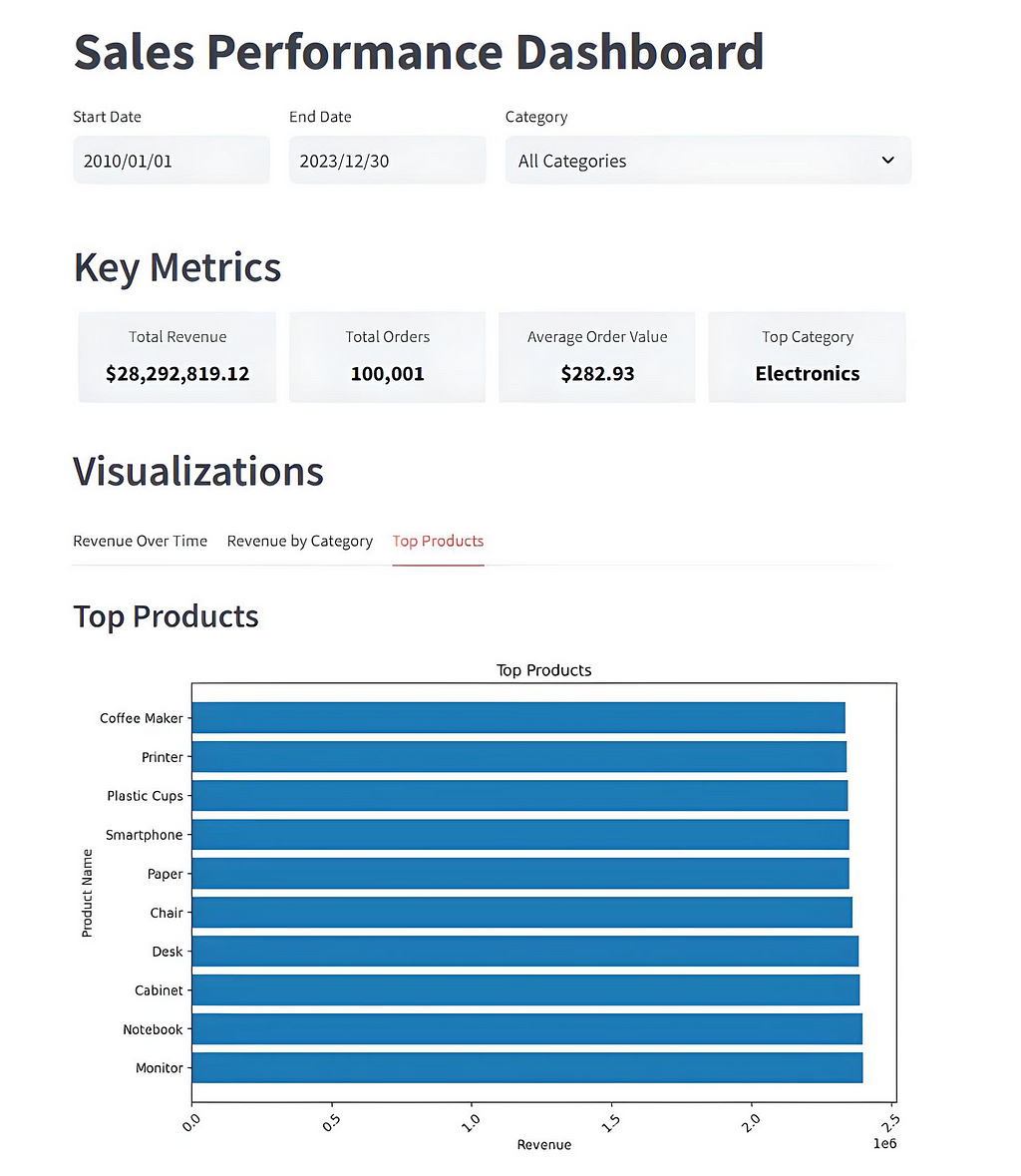What Teaching AI Taught me About Data Skills & People
Three key lessons from my journey as a corporate AI educator

As an AI Educator, my job was to equip corporate teams with the data & AI skills they needed to thrive. But looking back, I realized that I learned far more from them that they did from me.
Here’s what teaching 2000+ employees at 10+ large enterprises taught me about data skills, people, and the art of learning.
1. Data Science has More Meanings Than You Think — And These Meanings Change by the Day
Definitions are blurry, and so are skill requirements
There are many ways to define data science. The most popular one seems to be that data science sits at the intersection of computer science, maths & statistics, and domain knowledge.

It is always easy to criticise the commonly used Venn diagram above. However, keep in mind that they are purposefully oversimplified and therefore naturally flawed. Personally, I believe it is a useful way to conceptualize data science. If your work involves computer science (programming, databases, cloud infrastructure), math & statistics (statistics, stochastics, machine learning) and domain knowledge, all to a non-trivial extend, you are probably doing data science.
Data scientists do widely different things in practice
The problem is that this definition is very general. I’ve met data scientists who…
- are unable to use fundamental programming tools or techniques for their analyses
- have never trained a machine learning model
- are isolated from the real business, focusing primarily on data pipelines or performance optimization
On the other hand, I’ve met…
- Software engineers who train machine learning models
- Data analysts who build complex data pipelines using Python
- Business analysts who use advanced statistical models but have never thought of them as AI
Data science-related job roles can be quite confusing in the real world, because…
- There is significant skill overlap between similar roles (data analyst, data engineer, data scientist, machine learning engineer, AI engineer)
- Companies define these job roles differently depending on their industry and size
- People take on new responsibilities but stay in the same job, never changing their job title
- Job requirements for the same role change rapidly
If you are able to pull data from a data warehouse using SQL and visualize statistical insights using Python, this would have secured you a great job as a data scientist 10 years ago. Nowadays, you may still have a shot in a traditional organization like a large insurance company. However, if you are trying to join a unicorn tech startup as a data scientist, you better know how to train ML models, deploy them to the cloud, and set up monitoring and retraining mechanisms with data, model, and code versioning. If you have 10+ years of experience using ChatGPT, that’s another plus.
Finding your personal development path
I think the key insights from these observations is that you should focus your personal skill development on what brings business value, not what is required by some arbitrary definition of your current job title.
If you are solving relevant business problems, enjoy your work, and are well compensated, don’t worry about what others think the market demands from you.
Of course, you should strive to expand your skill set and in today’s world, staying in the same role at the same company for 10 years is rarely optimal for long-term skill progression. But if you have found a business niche where your personal skill set is highly valued, you can be sure that there are other companies with the same problem. Your job is to make sure you can solve this problem, now and in the future.
Comparing yourself to others can be useful, but also distracting. Others have different personalities and interests and are probably doing a completely different job than you. Programming, Machine learning, cloud platforms, etc. are only tools. Learn the tools that you really need to be competent at solving a specific business problem.
2. Non-Technical Data & AI Roles Should be Embraced, not Ridiculed

Examples of non-technical data & AI roles
Since the advent of GenAI, thousands of AI experts have appeared on the job (and business influencer) market. It is easy to make fun of this development and of course, we all laugh at great memes like the one above. Yet, in this section, I want to break a lance for non-technical data & AI roles.
Most data & AI roles traditionally have been somewhat technical, e.g. data scientist, data engineer, or data analyst, usually involving specialization in programming and maths. Throughout my work, I have encountered a wide range of non-technical data & AI roles. Here are some examples:
- AI strategy consultant: Business professionals helping companies to build up a data & AI strategy.
- AI transformation manager: Leading AI initiatives such as AI ventures, AI strategy, or new AI business models
- Data culture manager: Building data governance, Forstering data literacy through learning programs, and enabling cross-functional collaboration
- Data steward: Managing and ensuring data quality, consistency, and security of data within an organization
Additionally, I’ve encountered professionals from non-technical domains that specialize in data & AI. Examples include:
- An Academic research consultant specializing in the use of AI tools in research
- A Law professor specializing in European AI regulation
- A Motion Designer specializing in visual art creation with AI tools
All of these professionals could label themselves data experts or AI experts — and rightfully so. They all have valuable expertise in a field of growing interest and serve important functions in their organizations. If someone possesses data/AI related skills that are relevant and not easily replaced, I am fine with them labeling themselves experts.
Why non-technical experts are important
In fact, the current developments in the AI field are normal in the process of technology maturation. In order to drive the first car, the Benz Patent Motor car (1885), you had to be quite technically versed, not to mention the complexity of inventing and building the car.
Nowadays, many automotive experts are non-technical, such as car salesmen (= AI Sales), driving instructors (AI Educators), or safety inspectors (AI compliance officers). They are vital to the automotive economy — just like non-technical AI experts are vital to the AI economy.
In my work, I’ve experienced these experts as very enriching and humbling, allowing to to see things from a different perspective, but also reminding me how much there is about AI and AI business that I don’t know, despite being a technical expert.
Let’s embrace new people entering the field, share our knowledge with them, and benefit from their unique expertise.
3. Education is Free — But Your Time Isn’t

The struggle of learning on the job
In the data science field, there is permanent pressure to stay up-to-date and learn new skills. After all, if you aren’t ready to provide your colleagues with an ad-hoc opinion about the new LLM that came out yesterday at 10pm, what is even the purpose of having you in the team?
Most data people are passionate and excited to learn about new technologies, given the opportunity. And nowadays, we have more opportunities to learn than ever before. Virtually all relevant knowledge is available for free on the internet, in text-, podcast, and video form. But if that is the case, then why does it feel like you never have the time to learn? To acquire the skills you need to satisfy your peers, your boss, the job market, and your own inflated self-expectations?
The harsh truth is that you are not being paid for your knowledge, but for the business value you bring to the company. If you want your employer to support your learning journey, explain to them why it will be worth it for them.
How to convince your employer to invest in your skills
You are not in as bad of a position as you think. There are several convincing arguments you can make:
- “We’ve been suffering from problem X for a long time. If I learn technology Y, this could bring us one step closer to solving the issue once and for all.”
- “I’ve recently heard about technology X in a podcast. With it, we could potentially make process Y more efficient, saving us Z hours every month. I’d like to have some time to explore this option.”
- “I know that we currently have no use cases for technology X in our company. I would like to change this, acting as an internal ambassador for this technology that is becoming increasingly relevant in the industry.”
The easiest way to get time off to learn new skills is to provide a use case example with a clear and believable roadmap to tangible business outcomes. However, this is not always possible. In these cases, my tip is to make the ambassador argument (point 3). Most companies are hesitant to invest substantial resources into a rising technology. A much cheaper solution is to invest in the education of individuals who act as ambassadors and drive experimentation with the technology in the organization, potentially leading to strong use cases at minimal resource investment.
Free Lunch: Choose an inspiring work environment
As an AI Trainer, I taught staff at all kinds of institutions — from dynamic IT companies to conservative banks. In every training I held, there was at least one person that amazed me with their enthusiasm to learn about data & AI. However, the way they express their interest could be fundamentally different.
The most engaged participant at a science company might ask for advice on prompt engineering for their ongoing LLM hobby project. At a large financial institute, a highly motivated participant might instead bring print-outs of their STATA scripts to the training, having highlighted relevant sections with a text marker, asking me to help them migrate the code to Python.
What this tells us is that if we want to learn fast and be at the forefront of technological progress, motivation is not enough (although it is a prerequisite). Ideally, we want to choose a work environment where we are surrounded by like-minded people. Working with other tech-enthusiasts changes your perspective on what is possible with technology, inspiring you to become a little bit less incompetent every day.
This makes your work environment a “free lunch”. At no additional time investment, your learning progress is accelerated. Do not underestimate the power of this effect in the long term!
Conclusion
In this post, I discussed three of my key learnings from teaching AI in large corporations:
- 1. Data Science has more meanings than you think — and these meanings change by the day
- 2. Non-Technical data & AI roles should be embraced, not ridiculed
- 3. Education is free — but your time isn’t
I hope you found this post meaningful and enjoyed reading it!
I write regularly about AI, focusing on the intersection of AI and Music. Here are some of my posts you might also like:
- 🖼️ Images that Sound: Creating Stunning Audiovisual Art with AI
- 💻 How AI Can Remove Imperceptible Watermarks
- 🎶 The Future of Music Discovery: Search vs. Generation
Follow me on LinkedIn for regular updates on developments in the field of AI and Music.
What Teaching AI Taught me About Data Skills & People was originally published in Towards Data Science on Medium, where people are continuing the conversation by highlighting and responding to this story.
from Datascience in Towards Data Science on Medium https://ift.tt/jZQuLNh
via IFTTT








